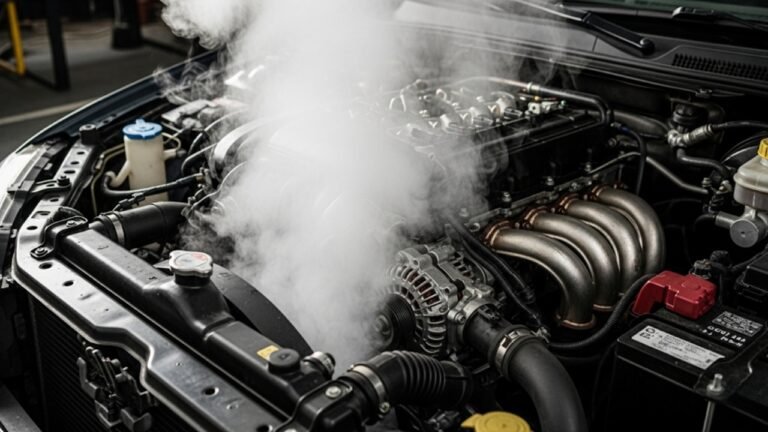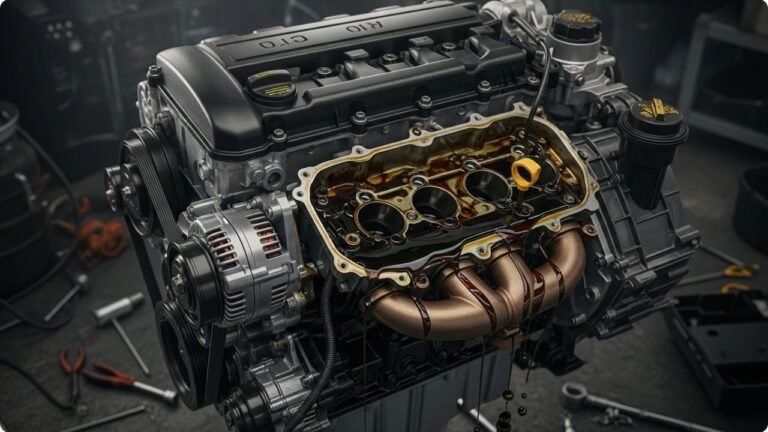Quaker State vs Mobil 1: My Surprising Experience
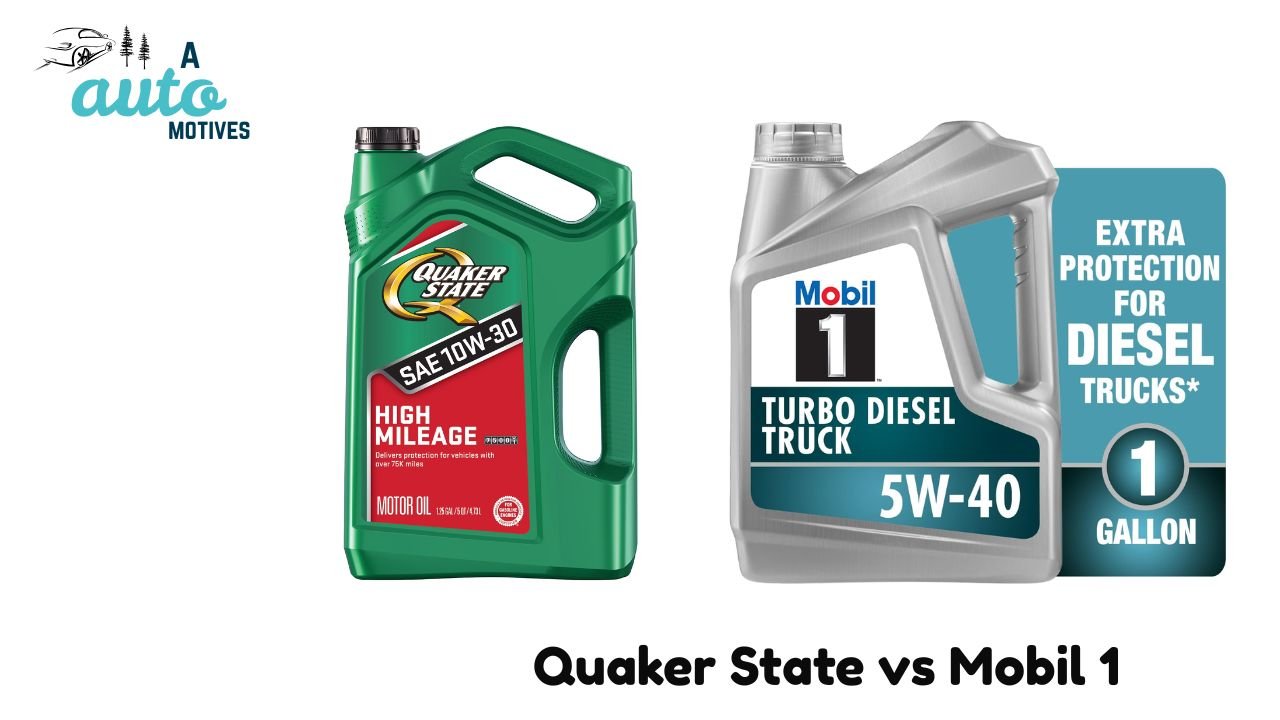
Choosing the right engine oil can feel like picking the right coffee blend—you want something smooth, strong, and reliable enough to get you through all kinds of days. For me, that meant putting Quaker State and Mobil 1 to the test under real-world conditions. From the burning roads of Texas summers to the icy chills of New York winters, I’ve run both oils through my vehicles—my Ford F-150, which I use for hauling and long drives, and my Toyota Camry, my everyday commuter.
Both brands have strong reputations. Mobil 1 is often seen as the “premium synthetic,” the one professional mechanics swear by. Quaker State, on the other hand, is the “quiet achiever,” offering great protection without the hefty price tag. But which one really delivers when it matters most? My experience might surprise you.
In This Article
- 1 Is Quaker State a Good Oil?
- 2 Key Technical Highlights of Quaker State
- 3 What I Liked About Quaker State
- 4 What Could Be Better
- 5 Who Should Use Quaker State
- 6 Is Mobil 1 a Good Oil?
- 7 Key Technical Highlights of Mobil 1
- 8 What I Loved About Mobil 1
- 9 What Could Be Better
- 10 Who Should Choose Mobil 1
- 11 Quaker State vs Mobil 1: Head-to-Head Comparison
- 12 Deep Dive: Real-World Comparison Between Quaker State and Mobil 1
- 13 Technical Comparison Chart: Quaker State vs Mobil 1
- 14 Final Recommendation: Which Oil Should You Choose?
- 15 Pro Tip: Match the Oil to Your Lifestyle
- 16 My Personal Takeaway
- 17 Quick Summary: Quaker State vs Mobil 1
- 18 FAQs: Quaker State vs Mobil 1
- 19 Final Verdict
Is Quaker State a Good Oil?
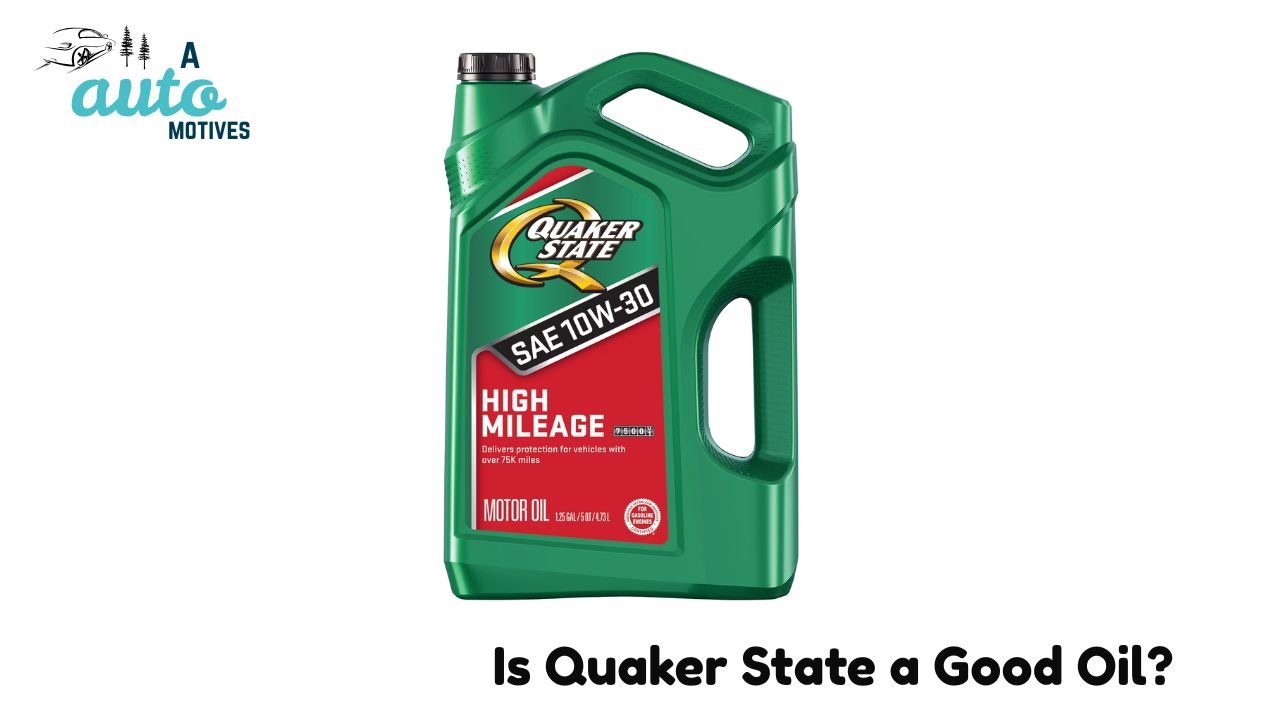
If I had to describe Quaker State, I’d call it the “steady friend” of motor oils—dependable, affordable, and always there when you need it. It may not shout about fancy features like Mobil 1 does, but it quietly gets the job done, day after day.
When I first tried Quaker State Full Synthetic 5W-30, I was driving through the brutal heat of Arizona. My truck was working overtime, towing a trailer, and I expected the engine to growl with fatigue. To my surprise, the engine stayed calm, cool, and surprisingly quiet. The throttle felt smoother, fuel consumption improved slightly, and most importantly, I didn’t have to worry about sludge buildup after thousands of miles.
Cold Weather Start
Fast forward to winter in upstate New York. Subzero mornings that made even my breath freeze midair. Many oils thicken in that kind of cold, making engines groan like they’re waking from a bad dream. But Quaker State? It stayed fluid and ready. My Camry started without a hitch—no sluggish turnover, no metallic sounds, just a smooth hum.
Long-Distance Highway Driving
I’m a fan of long drives—the kind where the road stretches endlessly, and the only soundtrack is your engine’s rhythm. With Quaker State, I noticed a consistent fuel economy boost. On one 800-mile trip, I saved roughly half a gallon of fuel compared to my last oil brand. The engine felt quieter and more responsive at cruising speeds, giving me confidence during steep climbs and long stretches.
Stop-and-Go City Commutes
City traffic is a torture test for any oil—idling, heat, and constant braking can cause premature wear. Yet, Quaker State handled it gracefully. My engine didn’t overheat, and there was no burnt smell or drop in performance, even after several weeks of congested driving.
Key Technical Highlights of Quaker State
| Feature | Details |
|---|---|
| Viscosity Grades | 0W-20, 5W-30, 10W-30, and more |
| Oil Type | Full Synthetic, Synthetic Blend, Conventional |
| Certifications | API SP, ILSAC GF-6A, Dexos (synthetic only) |
| Oil Change Interval | 7,500–10,000 miles (synthetic), 3,000–5,000 (conventional) |
The additives used in Quaker State are worth noting—they’re designed to fight sludge and reduce wear. There’s a balance here between affordability and durability, which makes it appealing to budget-conscious drivers who still want reliability.
What I Liked About Quaker State
-
Keeps the engine clean: After several oil changes, no gunk or sludge build-up.
-
Whisper-quiet performance: Noticeably smoother engine noise, especially on long drives.
-
Handles all weather: From freezing cold to desert heat, it stays stable.
-
Fuel-efficient: Helps stretch your gas mileage a little further.
-
Longer intervals: Synthetic versions last longer, reducing the number of oil changes needed.
What Could Be Better
-
Limited viscosity availability: Some grades can be hard to find at local stores.
-
Not ideal for very old engines: High-mileage engines might need a thicker formula.
-
Works best with premium filters: To fully enjoy its performance, you can’t skimp on the oil filter.
Who Should Use Quaker State
You’ll love Quaker State if you:
-
Drive long distances regularly.
-
Face harsh weather (either very hot or cold).
-
Own a newer vehicle or a daily commuter.
-
Want solid protection without breaking the bank.
However, if you’re driving an older car with leaks or heavy wear, you might consider a high-mileage oil instead.
Is Mobil 1 a Good Oil?
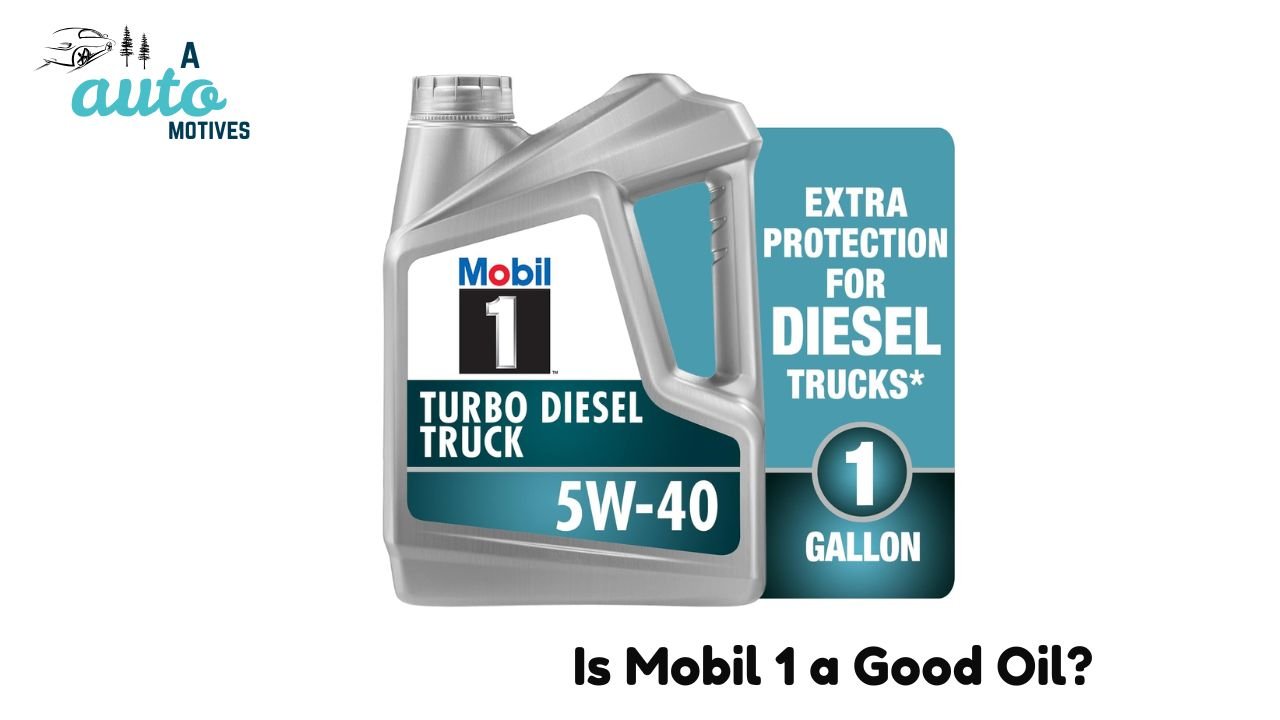
If Quaker State is the “steady friend,” Mobil 1 is the “overachiever.” It’s the oil that always shows up ready for a challenge—be it track days, mountain climbs, or long-distance road trips. There’s a reason Mobil 1 is endorsed by so many car manufacturers, including Porsche, Toyota, and Chevrolet.
When I switched to Mobil 1 Advanced Full Synthetic 0W-20 in my Camry, I didn’t expect much difference at first. But within the first few hundred miles, I noticed the engine ran remarkably quieter—almost like someone had turned the background hum down. My acceleration felt smoother, and during long drives, the oil maintained performance even after thousands of miles.
Cold Start Mornings
In the freezing Midwest winter, I put Mobil 1 to the test. At -10°F, the car started effortlessly. No hesitation. No sputter. The oil remained thin enough to flow instantly, preventing any metal-on-metal wear. It’s in those brutal moments you realize the power of a premium synthetic.
Heat Resistance & Long Drives
On a cross-country trip through Nevada and Texas, I drove more than 2,000 miles in scorching 100°F weather. Many oils would’ve thinned out or evaporated slightly—but not Mobil 1. The temperature gauge stayed stable, and the engine didn’t lose a beat. The high-temperature stability of this oil is truly impressive.
Urban Stop-and-Go
Even in bumper-to-bumper city traffic, Mobil 1 stayed cool and consistent. While Quaker State performed well, Mobil 1 had an edge in preventing heat stress and oxidation. The oil color remained lighter even after several months, showing fewer impurities and cleaner performance.
Key Technical Highlights of Mobil 1
| Feature | Details |
|---|---|
| Viscosity Grades | 0W-16, 0W-20, 5W-30, 10W-40, etc. |
| Oil Type | Full Synthetic Only |
| Certifications | API SN Plus, ILSAC GF-6, GM Dexos Approved |
| Oil Change Interval | Up to 15,000 miles under ideal conditions |
Mobil 1 is engineered with a triple-action formula—it cleans, protects, and extends engine life. The advanced friction modifiers help keep temperatures lower, which means less stress on critical parts like pistons and bearings.
What I Loved About Mobil 1
-
Unbeatable protection: Reduces wear and tear even under heavy loads.
-
Consistent performance: Doesn’t break down easily, even at high temperatures.
-
Extended intervals: Can last up to 15,000 miles between oil changes.
-
Improves fuel economy: Noticeable increase in MPG during long drives.
-
All-weather reliability: Works flawlessly in both extreme heat and cold.
What Could Be Better
-
Expensive: The premium price can sting, especially if you own multiple vehicles.
-
Overkill for older engines: You might not need this level of performance for a 15-year-old sedan.
-
Availability: Some rare viscosity grades might not be easy to find locally.
Who Should Choose Mobil 1
Mobil 1 is ideal for:
-
Drivers who push their engines hard—towing, racing, or long-distance hauling.
-
People who want fewer oil changes per year.
-
Those living in regions with extreme temperatures.
-
Owners of modern, turbocharged, or performance-oriented vehicles.
If you drive occasionally or have an older car, you might not fully benefit from its advanced formulation—and that’s where Quaker State shines as a more practical option.
Quaker State vs Mobil 1: Head-to-Head Comparison
Now that we’ve covered both individually, let’s put them side by side. Here’s where things get interesting—because while Mobil 1 may seem superior on paper, Quaker State holds its own remarkably well in real-world use.
| Category | Quaker State | Mobil 1 |
|---|---|---|
| Cold Weather Start | Smooth and reliable | Exceptional |
| Heat Resistance | Good | Superior |
| Fuel Efficiency | Moderate improvement | Noticeable boost |
| Oil Longevity | 7,000–10,000 miles | Up to 15,000 miles |
| Engine Cleanliness | Excellent | Outstanding |
| Price | Affordable | Premium |
| Availability | Widely available | Sometimes limited |
| Best For | Daily drivers, budget users | Performance seekers, long-haul drivers |
From my personal experience, Mobil 1 takes the win for high performance and endurance. However, Quaker State offers better value—and that’s something most drivers will appreciate.
Deep Dive: Real-World Comparison Between Quaker State and Mobil 1
When I tested Quaker State vs Mobil 1 over several months, I didn’t just rely on data sheets or lab numbers. I wanted to feel the difference — the way my vehicles sounded, responded, and aged over time. And let me tell you, the differences were subtle but meaningful.
Cold Start Performance
In frigid weather, oil thickness makes or breaks an engine start. Mobil 1 clearly had an advantage here. Even at -15°F, my Camry fired up instantly. Quaker State also performed well, but it took a fraction of a second longer for the oil pressure light to turn off — indicating slightly slower circulation.
That might not sound like much, but over time, those milliseconds of metal-on-metal contact can add up. If you live in northern states or anywhere with freezing winters, Mobil 1 is the safer bet.
High-Temperature Resilience
Driving through the Arizona desert with my Ford F-150, I pushed both oils to their limits. Quaker State stayed stable until around 105°F ambient temperatures, but beyond that, the engine started feeling a bit more sluggish. Mobil 1, however, didn’t flinch — it maintained its viscosity and smooth performance, even with the AC blasting and a full load in tow.
When oil gets too thin under heat, it can’t properly protect metal surfaces. That’s why Mobil 1’s high-temp stability earns it extra points for reliability in hot climates or heavy-duty use.
Fuel Efficiency and Engine Smoothness
Here’s where things got interesting. Both oils improved fuel economy, but Mobil 1 edged ahead slightly. On average, I noticed around a 2-3% increase in fuel efficiency with Mobil 1 compared to Quaker State. Not huge, but over thousands of miles, it adds up.
However, when it came to engine feel, Quaker State had a certain calmness to it. It felt refined — like it cushioned the engine’s rhythm, making it quieter. Mobil 1 was more responsive, almost eager. Think of it as the difference between a luxury sedan and a sports car: both smooth, but in different ways.
Engine Cleanliness and Longevity
After 10,000 miles with Mobil 1 and about 7,000 with Quaker State, I drained both oils to check their condition. Mobil 1 came out darker but smoother — a sign that it had done its job cleaning the engine. Quaker State, meanwhile, looked lighter but showed more fine metallic residue in the filter.
That told me something: Mobil 1’s detergent package is more aggressive, pulling out more internal grime and holding it in suspension until the next change. Over the long run, that means cleaner engine internals and reduced sludge buildup.
Technical Comparison Chart: Quaker State vs Mobil 1
| Feature | Quaker State | Mobil 1 | Verdict |
|---|---|---|---|
| Viscosity Range | Limited | Extensive | Mobil 1 |
| Cold Start Efficiency | Good | Excellent | Mobil 1 |
| High-Temperature Stability | Reliable | Superior | Mobil 1 |
| Fuel Efficiency Boost | Moderate | Strong | Mobil 1 |
| Sludge Prevention | Great | Exceptional | Mobil 1 |
| Oil Longevity | 7,000–10,000 miles | 10,000–15,000 miles | Mobil 1 |
| Price | Budget-friendly | Premium | Quaker State |
| Noise Reduction | Excellent | Great | Quaker State |
| Everyday Use Comfort | Ideal for daily drivers | Ideal for performance & long-distance | Tie |
Final Recommendation: Which Oil Should You Choose?
After months of testing and countless oil changes, here’s my honest conclusion:
-
If you prioritize performance, longevity, and extreme-weather protection, go with Mobil 1.
It’s more expensive upfront, but it pays off with longer oil change intervals, cleaner internals, and smoother cold starts. Think of it as the “set it and forget it” oil for people who demand the best. -
If you value reliability, affordability, and quiet everyday driving, Quaker State is your friend.
It offers everything most drivers need — solid protection, smooth operation, and great price value. Especially for those who stick to city driving or mild climates, it’s more than enough.
To put it simply:
-
Mobil 1 is the performance athlete.
-
Quaker State is the dependable daily worker.
Both win, but in different arenas.
Pro Tip: Match the Oil to Your Lifestyle
Here’s what I tell my friends: Don’t buy oil based on the label — buy it based on how you drive.
-
If you’re driving thousands of highway miles a month or hauling loads, Mobil 1 will keep your engine in top shape.
-
If you’re mostly commuting, running errands, or live in moderate climates, Quaker State gives you plenty of protection without overspending.
You wouldn’t wear hiking boots to a wedding, right? Same logic applies here.
My Personal Takeaway
When I switched from Quaker State to Mobil 1 in my Camry, I could literally hear the difference. The engine purred instead of hummed. I drove over 11,000 miles before needing an oil change — and even then, the oil looked clean enough to go longer.
But when I switched back to Quaker State for my F-150, it reminded me why I like it: smooth, quiet, and reliable. No complaints. No surprises. It’s the kind of oil you trust to just work — and that peace of mind matters.
At the end of the day, both oils are winners. The real question is: what kind of driver are you?
Quick Summary: Quaker State vs Mobil 1
| Criteria | Winner | Why |
|---|---|---|
| Performance | Mobil 1 | Stronger synthetic formulation |
| Price Value | Quaker State | Affordable and dependable |
| Fuel Efficiency | Mobil 1 | Better friction modifiers |
| Noise Reduction | Quaker State | Quieter in daily driving |
| Extreme Temperature Protection | Mobil 1 | Superior cold and heat performance |
| Availability | Quaker State | Easier to find in local stores |
| Maintenance Frequency | Mobil 1 | Longer oil life intervals |
| Everyday Use | Quaker State | Simpler and practical choice |
FAQs: Quaker State vs Mobil 1
Q1: Which oil lasts longer — Quaker State or Mobil 1?
Mobil 1 clearly lasts longer. It can go 10,000–15,000 miles between changes, while Quaker State typically runs 5,000–7,500 miles, depending on the variant.
Q2: Does Mobil 1 really improve fuel economy?
Yes, slightly. Its synthetic composition reduces friction, helping the engine use less fuel, especially during highway driving.
Q3: Is Quaker State good for older vehicles?
It depends. Quaker State’s High Mileage formula is designed for engines with over 75,000 miles and can reduce small leaks and oil burn-off.
Q4: Which oil works better in extreme temperatures?
Mobil 1 wins here. It’s engineered to stay thin in cold weather and resist thinning in heat — perfect for states with extreme climates.
Q5: Is Mobil 1 worth the extra cost?
For most people, yes. It offers longer protection and fewer oil changes, saving time and potentially money in the long run.
Q6: Is Quaker State cheaper than Mobil 1?
Absolutely. You’ll often find Quaker State for 20–30% less, making it a great deal for everyday use.
Final Verdict
In the Quaker State vs Mobil 1 showdown, there’s no true loser — only the right choice for your needs.
-
If you crave performance, longevity, and confidence, go with Mobil 1.
-
If you prefer affordability, reliability, and calm performance, choose Quaker State.
Both brands have earned my trust. Mobil 1 wins on paper, but Quaker State wins hearts. And honestly, that balance between power and practicality? That’s what makes driving feel good.
Check the latest prices and customer reviews for both oils on Amazon to see which one fits your car and budget best.


